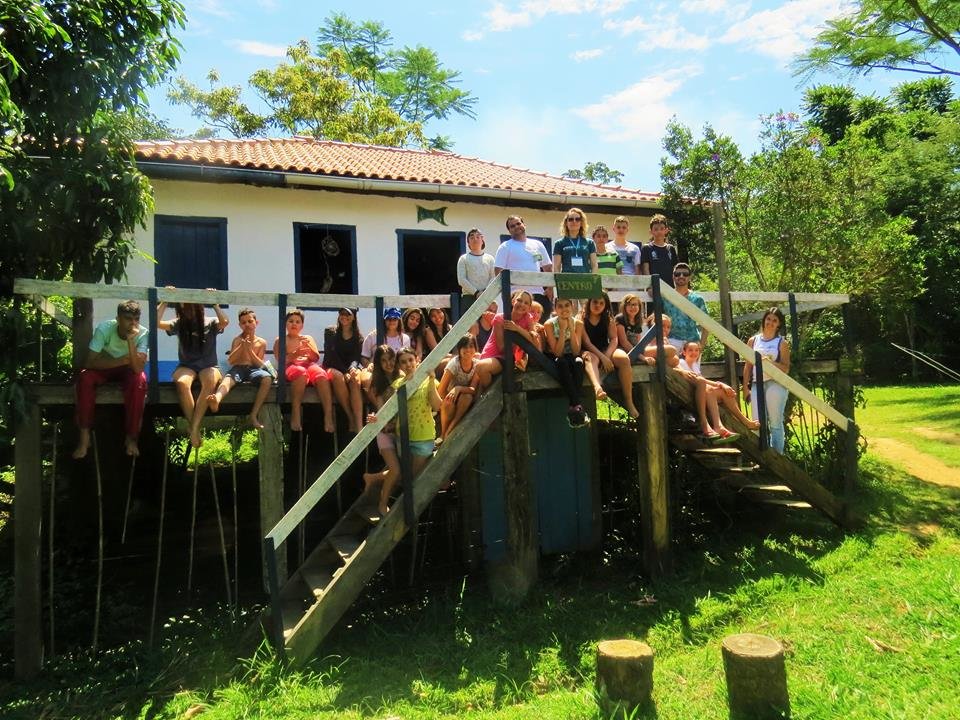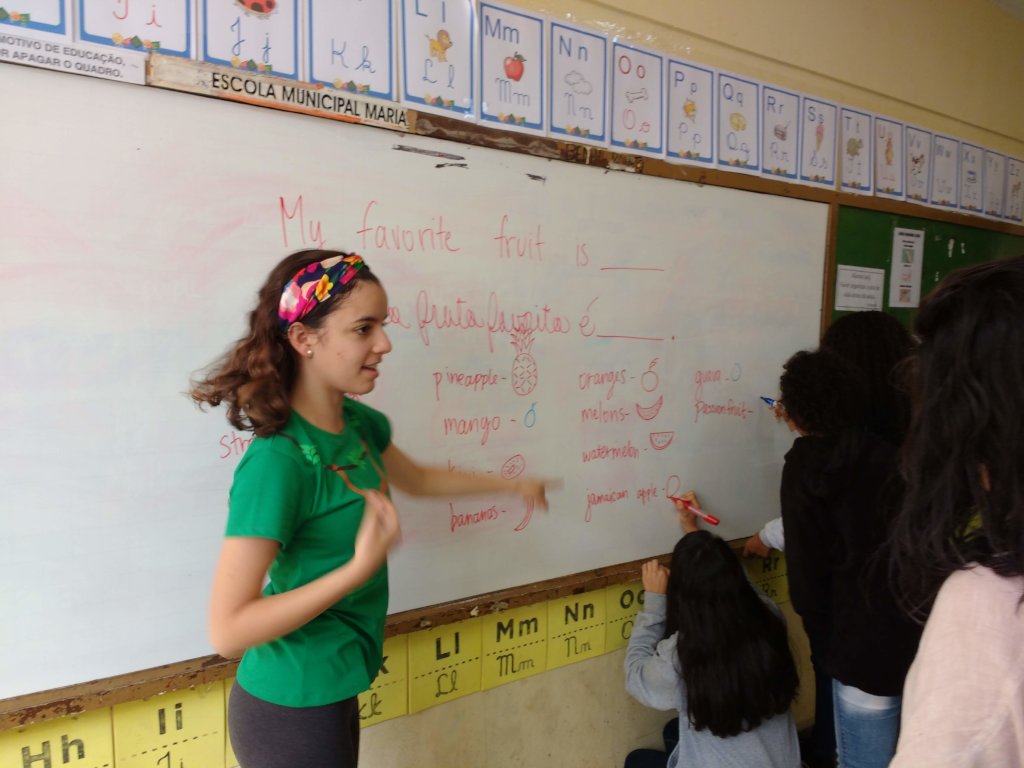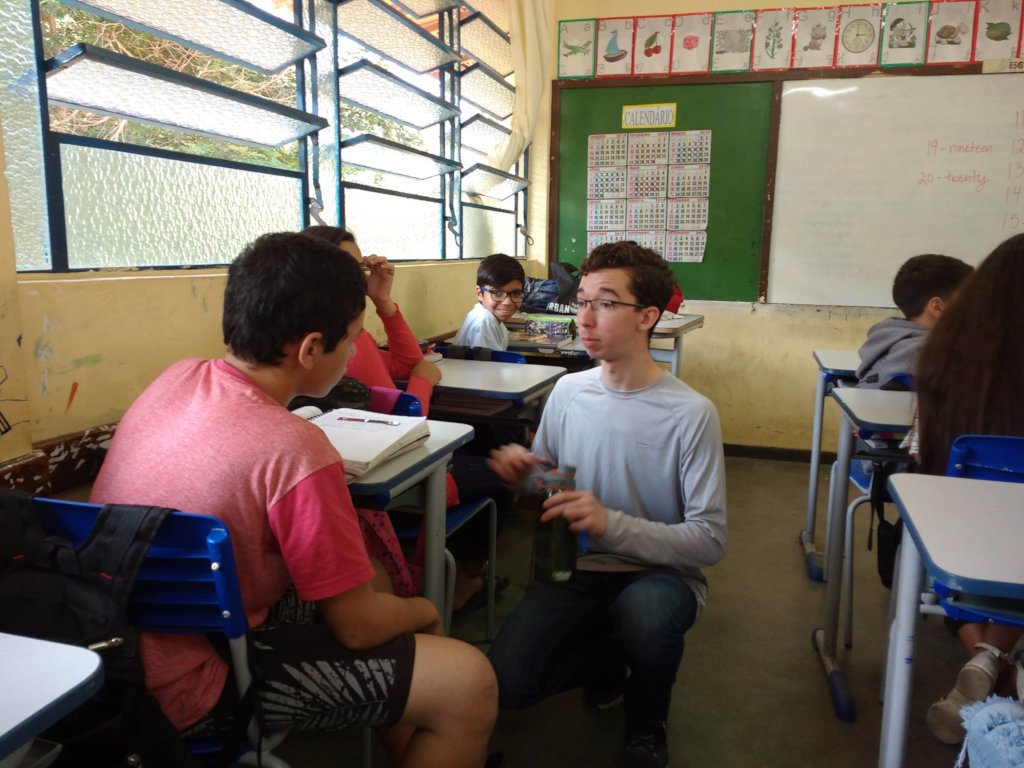By Marina Carvalho | Project Coordinator
The end of the holidays arrived in March and the Ecoleaders project is back at work! So we’ve been taking our international volunteers to the local village school, where they got to share stories about the natural environment where they live - for example Jamaica and Florida. The volunteers and the kids had a blast- through a rich exchange of smiles and knowledge.
These kids also visited Iracambi and hiked our Atlantic Rainforest trails. During the forest hikes, they made many discoveries about the forest. They also had the opportunity to learn a few words in English while interacting with our volunteers- all native English speakers.
During this past trimester, school visits for the end of the year were also set up. The next activities, which will be in the schools will enormously enrich the Ecoleaders program, because we believe that if we start inside the classrooms, we’ll be able to get the kids excited about nature before they go into the forest. After the classroom activities aimed at stimulating interest in the environment, the kids become more excited about taking part in outdoor activities, where they absorb much more knowledge from the forest.
Great things will be happening this year! Next week we'll be hosting a big school visit from Ervlália ( a neighboring town,) The students will be hiking in our forest trails and learning about Mother Nature through fun activities, as well having the chance to interact with our international volunteers and a group of Brazilian students who will also be on campus. But the details of this visit we’ll be sharing in our next report which will be full of fresh new stories of the Atlantic Rainforest!
Iracambi and the children you have helped want to send you a big thank you for everyting you do to support us.
A warm rainforest hug to you all of you!
Links:
By Marina Ferreira | Project Leader
By Marina Ferreira | Project Leader
Project reports on GlobalGiving are posted directly to globalgiving.org by Project Leaders as they are completed, generally every 3-4 months. To protect the integrity of these documents, GlobalGiving does not alter them; therefore you may find some language or formatting issues.
If you donate to this project or have donated to this project, you can receive an email when this project posts a report. You can also subscribe for reports without donating.
Support this important cause by creating a personalized fundraising page.
Start a Fundraiser

